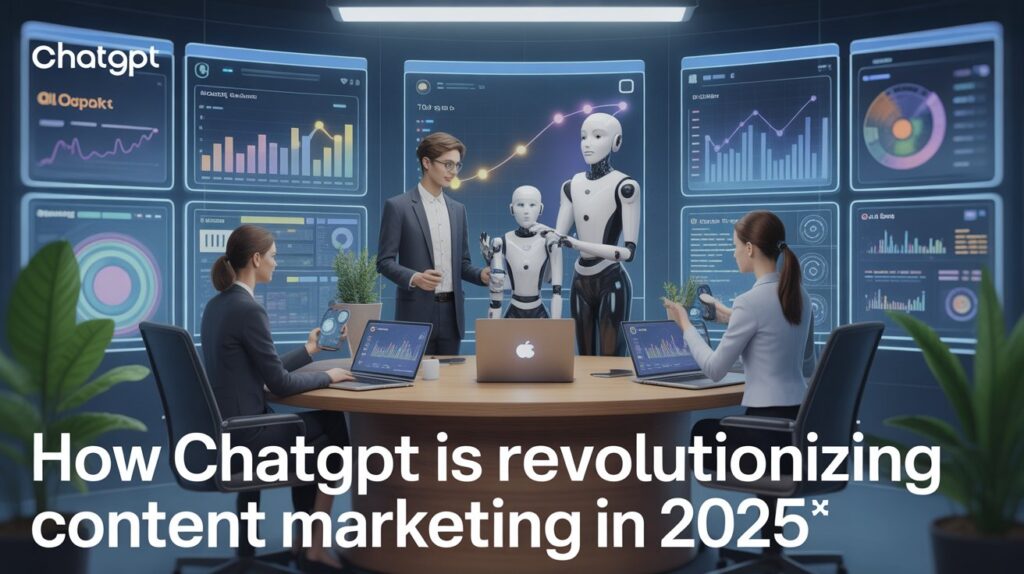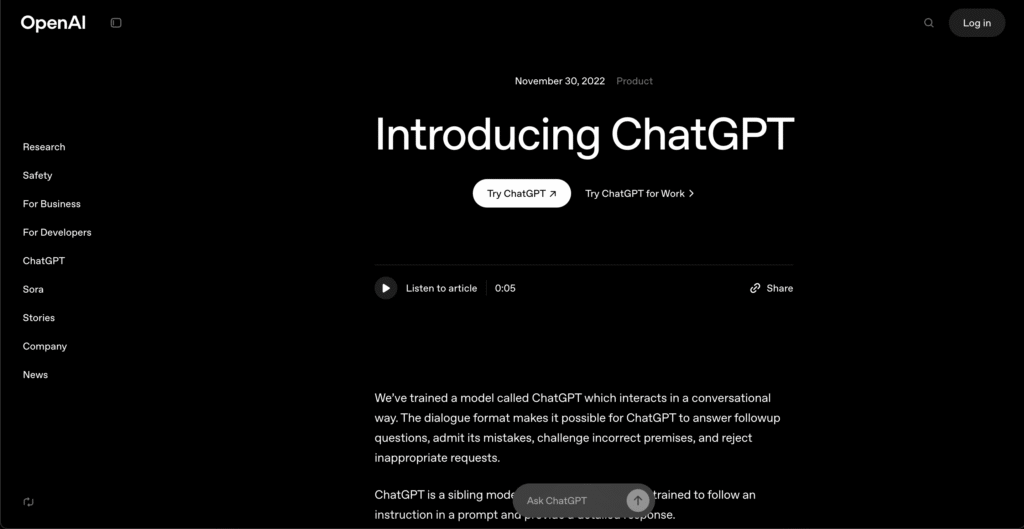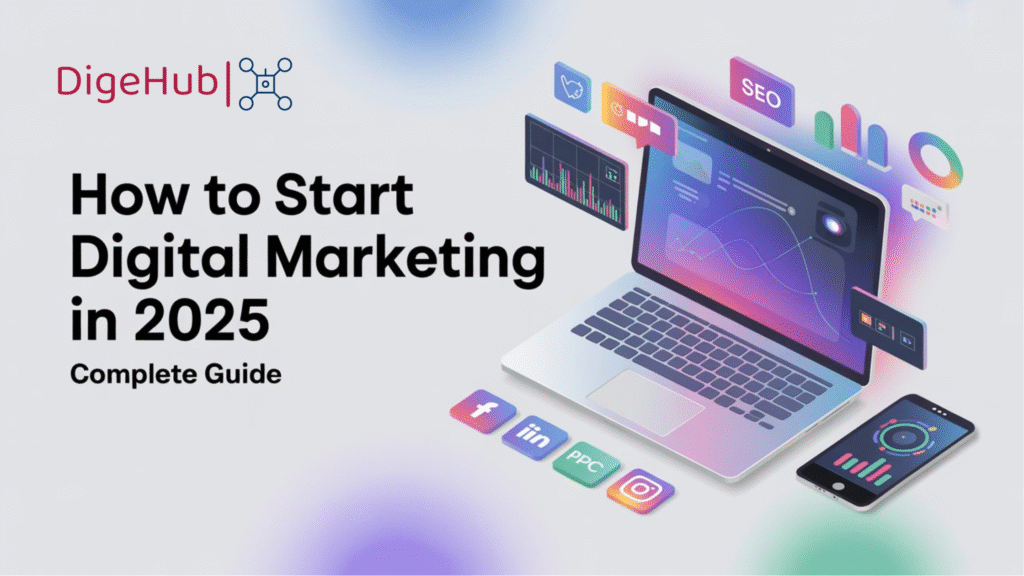How ChatGPT is Revolutionizing Content Marketing in 2025

In 2025, the digital marketing landscape is undergoing its biggest transformation yet, powered by artificial intelligence. At the heart of this revolution is ChatGPT, a generative AI tool that has become indispensable for businesses, marketers, and content creators. From automating repetitive tasks to delivering hyper personalized experiences, ChatGPT is rewriting the rules of content marketing.
Whether you’re a startup or a global brand, understanding how ChatGPT can supercharge your content strategy is critical to staying ahead. Let’s dive deep into the capabilities of ChatGPT, explore real world applications, and see how this AI innovation is reshaping everything from SEO to storytelling.
- How ChatGPT is Revolutionizing Content Marketing in 2025
- What Makes ChatGPT a Game Changer in Content Marketing?
- Key Ways ChatGPT is Transforming Content Creation
- How ChatGPT Enhances SEO and Keyword Strategy
- ChatGPT and Personalization: Delivering Tailored Content at Scale
- Personalization Benefits:
- Comparison Table: Human Copywriters vs. ChatGPT
- The Role of ChatGPT in Social Media Marketing
- Potential Challenges and Ethical Considerations
- How to Integrate ChatGPT into Your Content Marketing Workflow
- Future Outlook: What to Expect from AI Tools in 2026 and Beyond
- Conclusion
- FAQs
What Makes ChatGPT a Game Changer in Content Marketing?

ChatGPT aint just another content automation tool. It’s a conversational AI designed to understand context,, and user intent qualities that elevate it far above basic content spinners or keyword stuffers.
Why is it so impactful?
- Natural Language Processing (NLP): ChatGPT pretty much writes like an actual human now it even gets the tone, the little emotions, the way we’d actually say stuff.
- Scalability: You can pump out like hundreds of blogs, ads, product blurbs, even emails — all in no time. It’s kinda wild how fast it works.
- Semantic SEO Awareness: Tools like ChatGPT can understand related keywords, user behavior, and content clusters.
Businesses using AI for content are not just saving time; they’re producing higher quality, targeted content at scale. For example, marketing teams working with agencies like Digehub can now combine AI with creative strategy to double their output while maintaining brand voice.
Key Ways ChatGPT is Transforming Content Creation
ChatGPT can generate:
- Long-form blogs that ain’t just long for the sake of it they’ve got smart headers, subheaders, and those sneaky lil’ semantic keywords that make Google happy.
- Social media captions that actually sound like they belong on that platform — not stiff, just trend-aware and scroll-stopping.
- Email newsletters that change up depending on who’s reading — like, real personalization that doesn’t feel robotic.
- Product descriptions that kinda “get” the buyer — adapting to what different folks care about.
- And even scripts for videos or webinars that sound natural, like someone’s actually talking to you, not reading off a cue card.
Real World Applications:
- Blog Generation: Marketers use ChatGPT to produce optimized blog drafts, saving 60% of time.
- Content Repurposing: ChatGPT converts a blog into tweets, reels, carousel posts, or newsletters.
- Localization: Brands working across markets like the USA, Australia, and Netherlands can translate and localize content quickly.
How ChatGPT Enhances SEO and Keyword Strategy
SEO is evolving rapidly. Google now favors user intent and topical authority, not just keyword frequency.
ChatGPT helps by:
- Generating keyword rich outlines based on search trends
- Suggesting LSI (Latent Semantic Indexing) keywords
- Answering frequently searched queries
- Optimizing meta tags and schema markup
Using AI for SEO also boosts your website performance. Agencies like Digehub offer SEO services that now integrate ChatGPT into technical audits and content strategies.
Example:
Instead of writing for “best smartphones 2025,” ChatGPT identifies long tail versions like:
- “Which smartphone has the best camera in 2025?”
- “Top AI powered phones for productivity in 2025”
- “Affordable flagship smartphones under $500 in 2025”
ChatGPT and Personalization: Delivering Tailored Content at Scale
One size fits all content is dead.
ChatGPT enables:
- Dynamic user-specific emails that actually sound personal, not robotic.
- Landing pages that kinda “read the room” they change based on what a user does.
- Smart chatbot scripts that don’t just reply, but actually warm up leads like a real person would.
This makes it easier for teams to deploy cloud solutions and personalized customer journeys simultaneously.
Personalization Benefits:
- Higher engagement rates that actually stick around.
- Improved customer loyalty ‘cause people feel like they’re talking to a real brand, not a bot.
- Better conversion rates — ‘cause when it feels human, people click faster.
Comparison Table: Human Copywriters vs. ChatGPT
| Feature | Human Copywriter | ChatGPT (AI-Powered) |
|---|---|---|
| Writing Speed | 4 6 hrs per blog | 15 30 mins |
| Scalability | Low | Very High |
| Personalization | Medium | High |
| SEO Optimization | Manual | Automated |
| Cost | $$$ | $$ |
| Creativity | High | Medium-High (with prompts) |
The Role of ChatGPT in Social Media Marketing
Social media thrives on timely, trending, and targeted content.
ChatGPT can:
- Write platform-specific copy that actually fits what works on Twitter won’t fly on LinkedIn or Instagram.
- Whip up catchy ad captions with real hooks that make people stop scrolling.
- Turn one blog into a whole bunch of stuff — threads, carousel posts, even video scripts.
Digehub’s social media marketing services have seen a 3x increase in engagement after integrating AI tools like ChatGPT into content workflows.
Potential Challenges and Ethical Considerations
While ChatGPT is powerful, it comes with caution:
- Fact checking is essential (ChatGPT can hallucinate)
- Plagiarism checks must be performed
- Over reliance may limit brand voice and creativity
Solution? Human + AI collaboration. Platforms like Digehub combine expert writers and AI to offer the best of both worlds.
How to Integrate ChatGPT into Your Content Marketing Workflow
- Brainstorm Topics: Use ChatGPT for SEO friendly ideas
- Generate Outlines: Feed a prompt with your target keyword
- Draft Content: Let ChatGPT do the heavy lifting
- Human Edit: Fine tune tone, accuracy, and branding
- SEO Optimize: Insert keywords, meta tags, schema
- Distribute: Schedule across blogs, social media, email
Tools like web development and automation platforms support this seamless workflow.
Future Outlook: What to Expect from AI Tools in 2026 and Beyond
- Multimodal AI’s takin’ over we’re talkin’ text, image, and video content all rolled into one smooth workflow.
- Predictive strategies now actually guess what your audience wants before you even do.
- Real-time, dynamic content shifts across channels like magic no more one-size-fits-all posts.
- And yeah, voice-driven marketing? It’s startin’ to power up big time.y AI assistants
In 2026, your marketing strategy might include AI agents that create, publish, analyze, and adapt content in real time.
Conclusion
Ready to revolutionize your content marketing with AI? Partner with Digehub’s digital marketing experts to develop an AI driven strategy tailored to your brand. Explore our blog writing services to get high converting content built with the power of ChatGPT and human creativity.
FAQs
What is ChatGPT used for in content marketing?
ChatGPT is basically used to crank out SEO blogs, ad captions, emails, and all kinds of personalized stuff — fast and clean. It helps marketers push out more content without the quality dropping off.
Can ChatGPT replace human content writers?
Not really. ChatGPT can speed things up big time when it comes to writing and coming up with ideas, but humans still run the show when it’s about tone, emotion, and getting things actually right.
Is ChatGPT good for SEO?
Yes. It helps generate keyword optimized content, meta descriptions, FAQs, and more. It also supports semantic SEO.
How do I start using ChatGPT in my marketing?
Use it for brainstorming, writing drafts, repurposing content, and creating SEO assets. Combine it with human editing for best results.
Is ChatGPT content unique?
Yes, but it’s essential to run it through plagiarism and fact checking tools before publishing.

